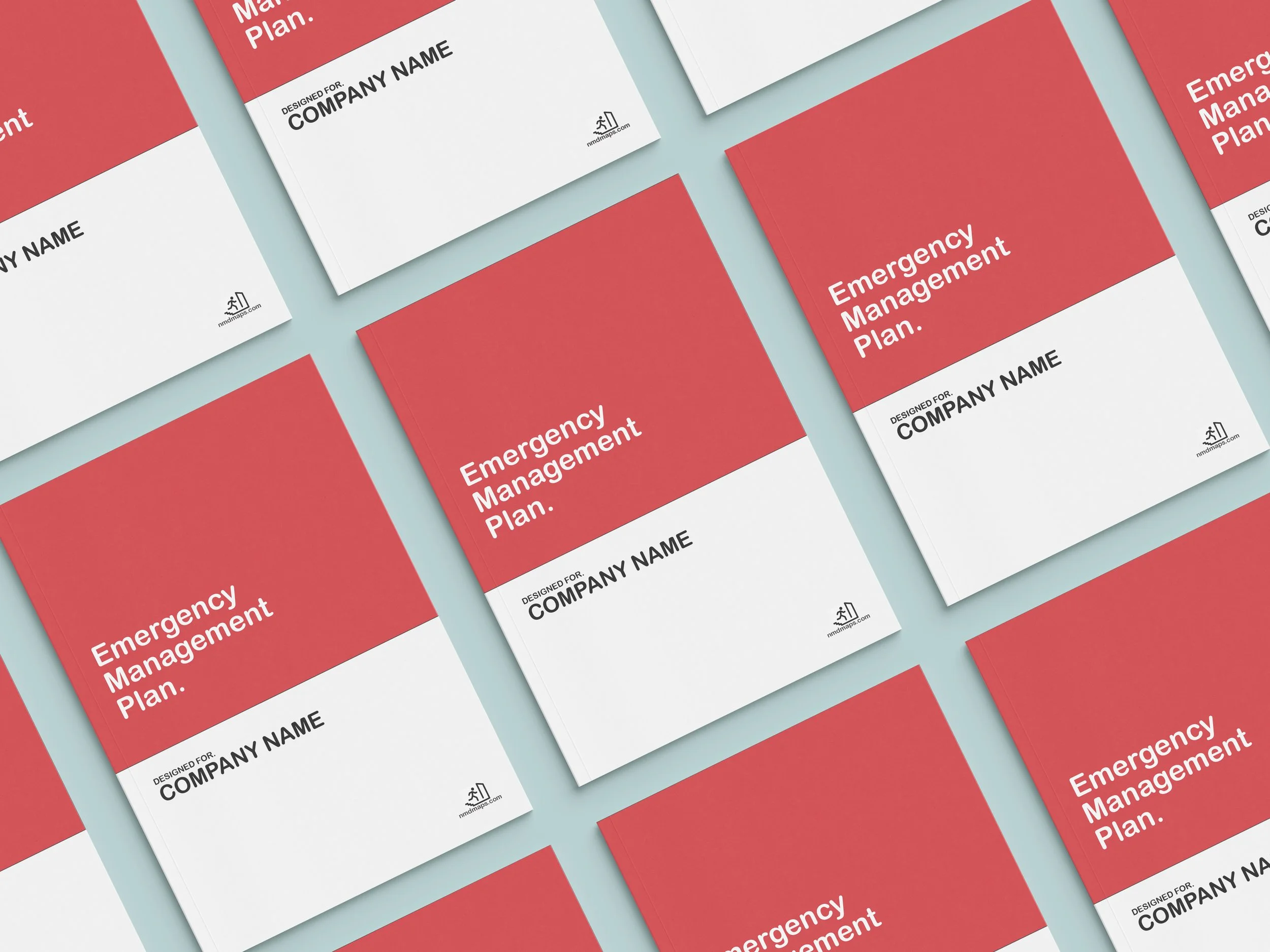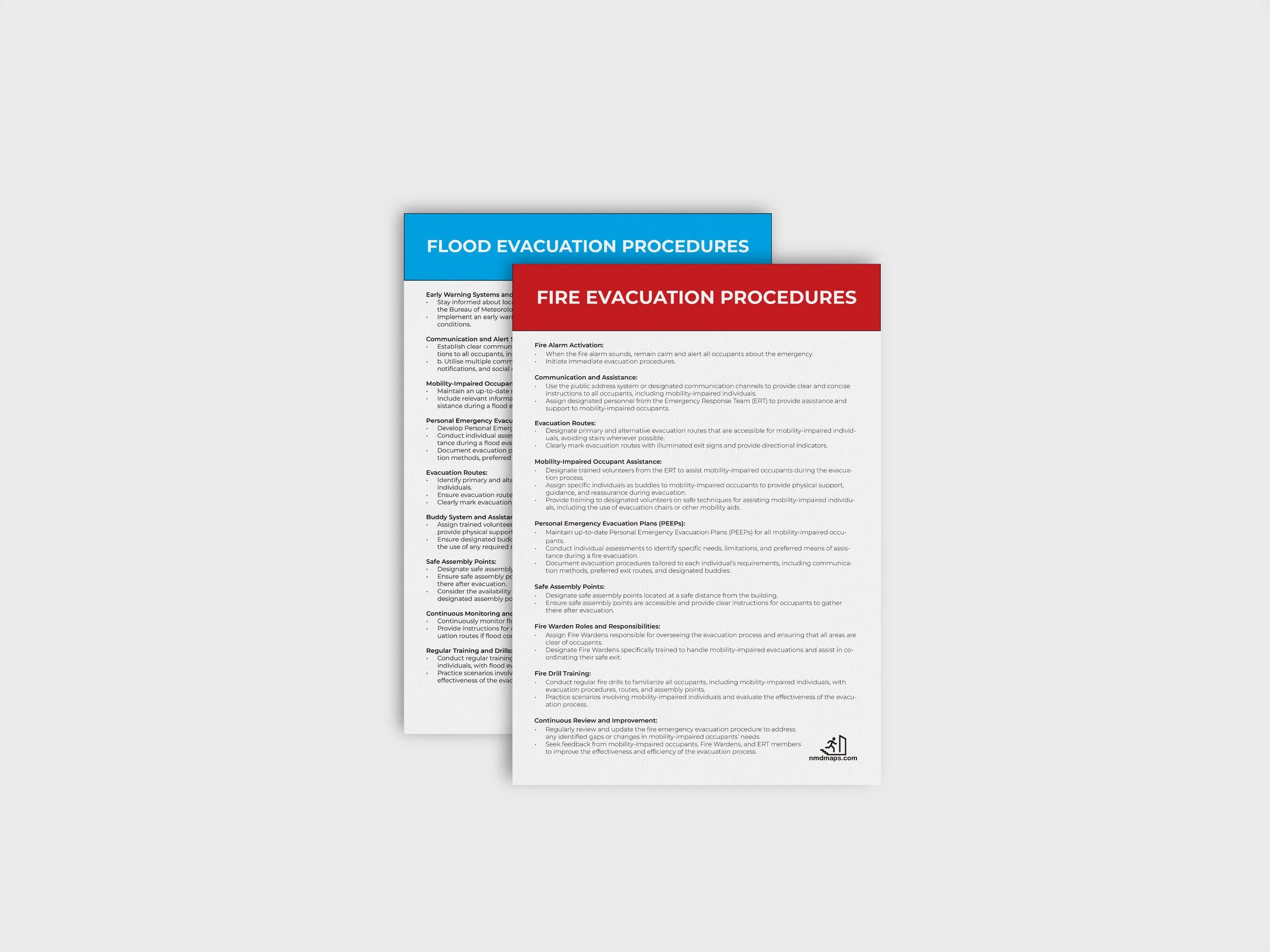Emergency Management Documentation
Business Continuity Planning: Safeguarding Operations Across Industries
In today's rapidly evolving landscape, businesses encounter a multitude of risks that can disrupt operations and threaten continuity. At NMD Maps, we understand the critical importance of Business Continuity Planning (BCP) in ensuring organisations can navigate through crises with resilience and agility. Our expertise spans various sectors, including Education Facilities, Shopping Centers, the Mining Industry, and the Health sector.
Education Facilities:
Education facilities are vital institutions responsible for shaping the minds of future generations. However, they are susceptible to various disruptions, including natural disasters, security threats, and public health emergencies. Our BCP for education facilities focuses on:
Academic Continuity: Implementing strategies to ensure uninterrupted learning through online platforms, remote instruction methods, and contingency plans for campus closures.
Student and Staff Safety: Developing emergency response protocols, conducting regular drills, and providing training in first aid and crisis management to ensure the safety of students, faculty, and staff.
Communication Plans: Establishing robust communication channels to keep stakeholders informed during emergencies, including parents, students, faculty, and staff.
Shopping Centers:
Shopping centers serve as vibrant hubs for retail, entertainment, and social gatherings. However, they face risks such as fire outbreaks, security breaches, and natural disasters that can disrupt operations and compromise safety. Our BCP for shopping centers includes:
Emergency Response Protocols: Developing clear evacuation procedures, training staff in emergency response, and establishing communication channels with tenants and customers.
Supply Chain Management: Diversifying suppliers, maintaining adequate inventory levels, and establishing alternative delivery routes to mitigate disruptions in the supply chain.
Customer Communication: Utilising various communication channels, such as digital signage and social media, to provide real-time updates and safety instructions to customers during emergencies.
Mining Industry:
The mining industry operates in challenging environments with inherent risks, including accidents, equipment failures, and geopolitical instability. Our BCP for the mining industry focuses on:
Worker Safety: Implementing rigorous health and safety protocols, conducting regular training programs, and equipping workers with appropriate personal protective equipment (PPE) to minimise workplace accidents.
Asset Protection: Deploying advanced monitoring systems, securing mining sites against unauthorised access, and establishing disaster recovery plans to minimise production downtime.
Community Engagement: Building strong relationships with local communities, government agencies, and emergency responders to coordinate response efforts and minimise the impact of mining-related incidents on surrounding areas.
Health Industry:
The health sector plays a crucial role in safeguarding public health and well-being, facing challenges such as pandemics, natural disasters, and cybersecurity threats. Our BCP for the health industry includes:
Patient Care Continuity: Ensuring uninterrupted access to medical services, medications, and essential supplies during emergencies through contingency staffing plans, telemedicine capabilities, and stockpiling critical resources.
Data Security and Privacy: Enhancing cybersecurity measures to protect patient data, implementing backup systems for electronic health records, and complying with regulatory requirements such as The Privacy Act 1988.
Pandemic Preparedness: Developing comprehensive pandemic response plans, stockpiling personal protective equipment (PPE), and establishing isolation and quarantine protocols to mitigate the spread of infectious diseases within healthcare facilities.
At NMD Maps, we recognise the unique challenges faced by each industry and work closely with our clients to develop tailored Business Continuity Plans that ensure operational resilience and preparedness for any potential disruption. Contact us today to safeguard your organisation's continuity and mitigate risks effectively.
Emergency Management Manuals: Ensuring Preparedness Across Industries
In the face of unpredictable events and crises, having a robust Emergency Management Manual (EMM) is crucial for organisations to effectively respond and mitigate risks. At NMD Maps, we specialise in crafting comprehensive EMMs tailored to the unique needs of various industries, including Schools, Retail, the Mining Industry, and the Health sector.
Schools:
Educational institutions are responsible for the safety and well-being of students, faculty, and staff. Recognising the diverse range of risks they face, our EMMs for schools focus on:
Natural Disasters Preparedness: Providing guidelines and procedures for evacuations, sheltering, and communication during events such as earthquakes, floods, or severe weather.
Security Threats: Developing protocols for responding to threats such as intruders, violence, or active shooters, including lockdown procedures and coordination with law enforcement.
Health Emergencies: Implementing plans for managing outbreaks of contagious diseases, providing first aid, and ensuring access to medical resources during emergencies.
Retail:
Retail establishments are vulnerable to various risks, including theft, fires, and public safety incidents. Our EMMs for retail businesses address:
Loss Prevention: Establishing procedures for handling theft, vandalism, and other security breaches, including staff training in security measures and collaboration with law enforcement.
Fire Safety: Implementing fire prevention measures, conducting regular inspections of fire suppression systems, and training staff in evacuation procedures.
Customer Safety: Developing protocols for responding to medical emergencies, accidents, or other incidents involving customers, including first aid training for staff and access to emergency services.
Mining Industry:
The mining industry operates in challenging environments with inherent risks such as accidents, equipment failures, and geological hazards. Our EMMs for mining companies encompass:
Safety Procedures: Establishing comprehensive safety protocols for workers, including training in hazard recognition, emergency evacuation drills, and the use of personal protective equipment (PPE).
Emergency Response: Developing plans for responding to accidents, cave-ins, or equipment failures, including communication procedures, rescue operations, and coordination with emergency services.
Environmental Contingencies: Addressing potential environmental hazards such as chemical spills, groundwater contamination, or wildlife disruptions, with strategies for containment, cleanup, and mitigation.
Health Industry:
Healthcare facilities face unique challenges, including pandemics, medical emergencies, and cybersecurity threats. Our EMMs for the health sector include:
Pandemic Preparedness: Developing plans for managing outbreaks of infectious diseases, including infection control measures, surge capacity planning, and allocation of resources.
Cybersecurity Measures: Implementing strategies to protect patient data and electronic health records from cyber threats, including regular system audits, employee training in cybersecurity best practices, and incident response procedures.
At NMD Maps, we understand the importance of preparedness in mitigating risks and ensuring the safety of personnel and assets. Our tailored Emergency Management Manuals provide organisations with the tools and procedures needed to effectively respond to emergencies and maintain the continuity of operations. Contact us today to learn more about how we can help safeguard your organisation against unforeseen events.


